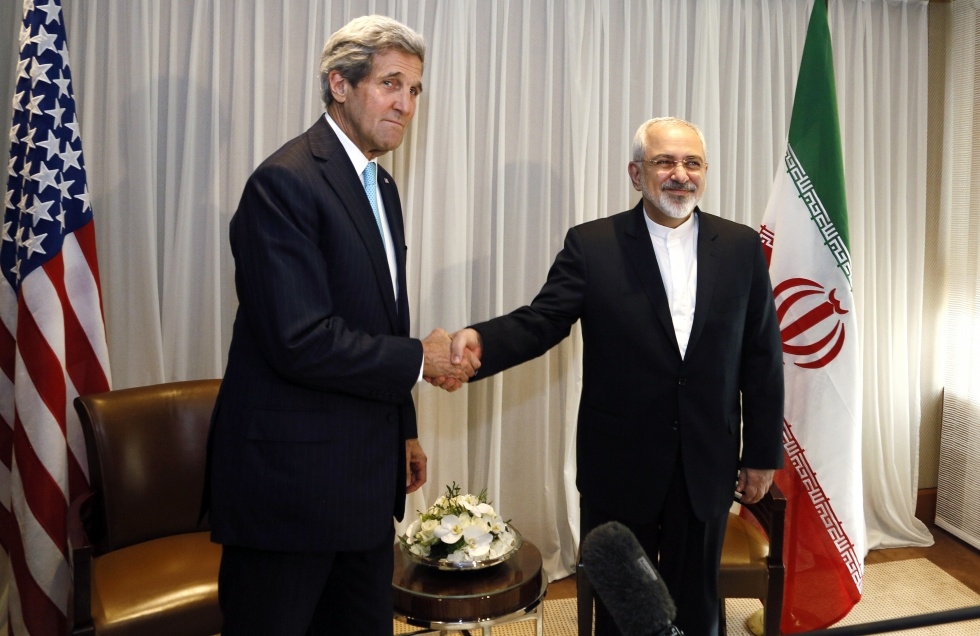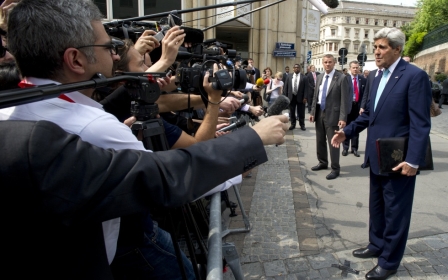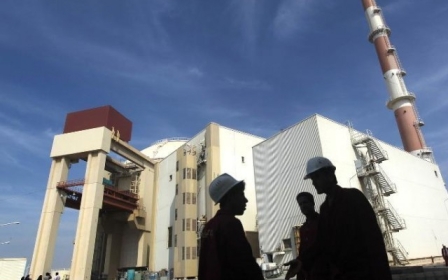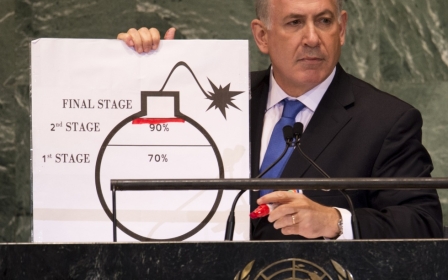US sets out 'bottom lines' for Iran nuclear deal

WASHINGTON - The United States on Friday set out what it called its "bottom lines" to reach a deal with Iran to rein in its nuclear programme, ahead of new talks next week.
Washington had stuck to its guns that it wanted a "good deal" and had agreed to several extensions of the negotiations "because we have held firm to certain bottom lines", a senior US administration official said.
"We will only accept an agreement that cuts off the different pathways to the fissile material that Iran needs for a nuclear weapon," the official stressed.
US Secretary of State John Kerry will leave at the weekend for Switzerland, where he will meet once again with his Iranian counterpart Mohammad Javad Zarif.
The pace and intensity of the talks have sped up as global powers gathered under the P5+1 group have been seeking a deal with Iran to stop it acquiring a nuclear weapon - something Tehran denies trying to do.
A 31 March deadline for a political framework for the deal is looming with negotiators saying they will aim to pin down the final technical details by 30 June.
While US officials cautioned that there were no guarantees a deal would be reached, they said, "The negotiations have advanced substantially, gaps have narrowed."
Staking out the broad outlines of a deal - without going into specifics - the US official spelt out where Washington was standing firm:
- Iran should not be allowed to develop weapons-grade plutonium at its Arak reactor. "We're discussing how Iran can convert that Arak reactor to serve a different purpose," the official said.
- Iran should not use its Fordo nuclear plant to enrich uranium.
- That would leave only Iran's Nantanz plant capable of enriching uranium, which at high grades can be used in nuclear weapons.
- Any deal must ensure that it would take Iran a year to gather enough fissile material to make a bomb.
- Iran would "reduce significantly" its current number of operating centrifuges and its domestic stockpile.
- Iran must agree to unprecedented inspections of both nuclear and production facilities as well as uranium mines and mills, and suspect sites.
- The US is pursuing a deal in which relief from international sanctions demanded by Iran "is phased in over a period of time".
"We are insisting on the principle that sanctions can snap back into place if Iran were to violate the agreement," the US official said.
Negotiations have been complicated by hardliners both in Iran and the United States, as well as by Israel lobbying against a deal.
Israeli Prime Minister Benjamin Netanyahu warned during a cabinet meeting last week that if the framework agreement is signed, it “will allow Iran to develop the nuclear capabilities that threaten our existence”.
Netanyahu is planning to address the US Congress on the issue on 3 March in a move to torpedo the deal.
“I will go to the US next week in order to explain to the American Congress, which could influence the fate of the agreement, why this agreement is dangerous for Israel, the region and the entire world,” he said.
New MEE newsletter: Jerusalem Dispatch
Sign up to get the latest insights and analysis on Israel-Palestine, alongside Turkey Unpacked and other MEE newsletters
Middle East Eye delivers independent and unrivalled coverage and analysis of the Middle East, North Africa and beyond. To learn more about republishing this content and the associated fees, please fill out this form. More about MEE can be found here.




